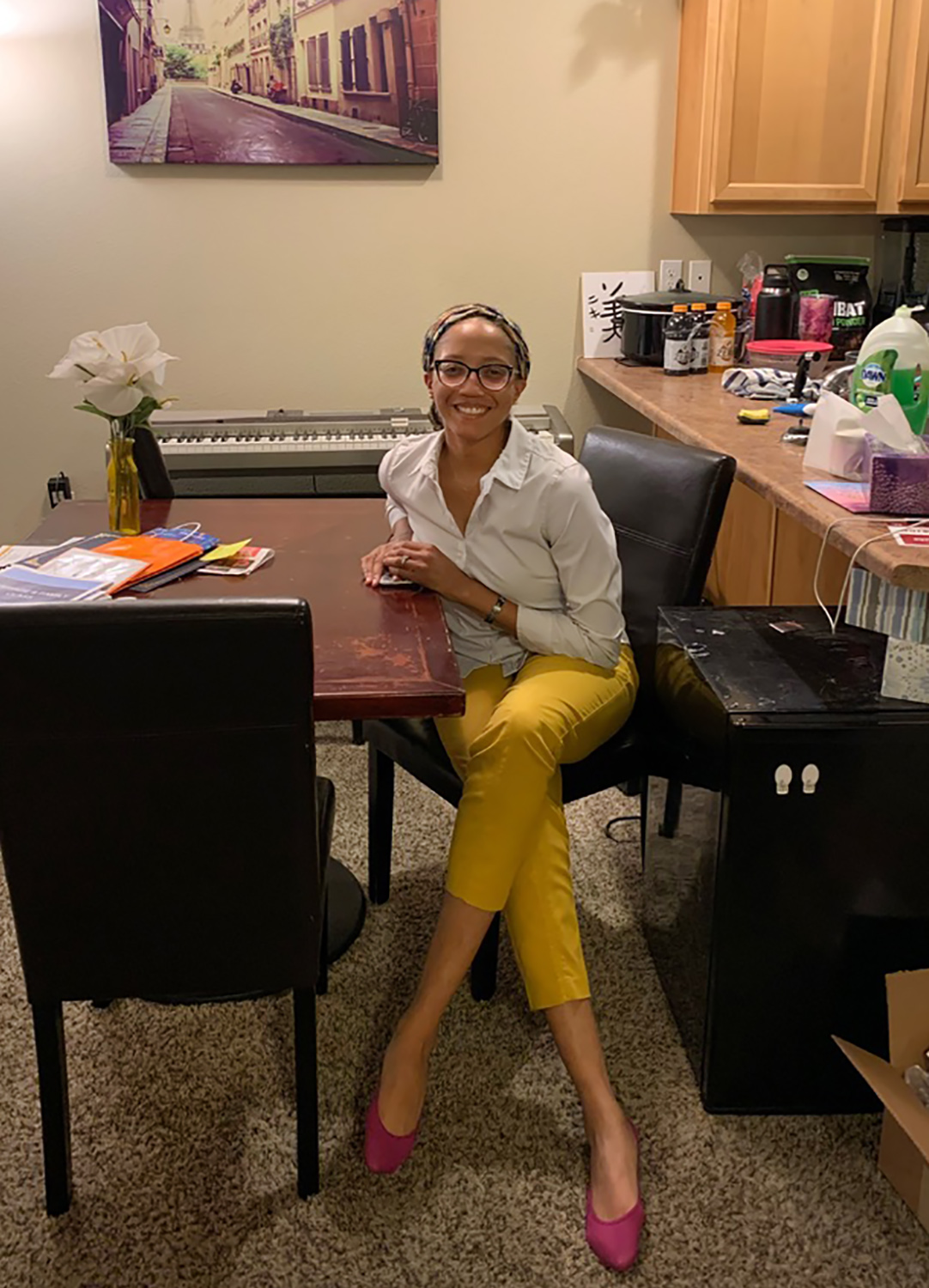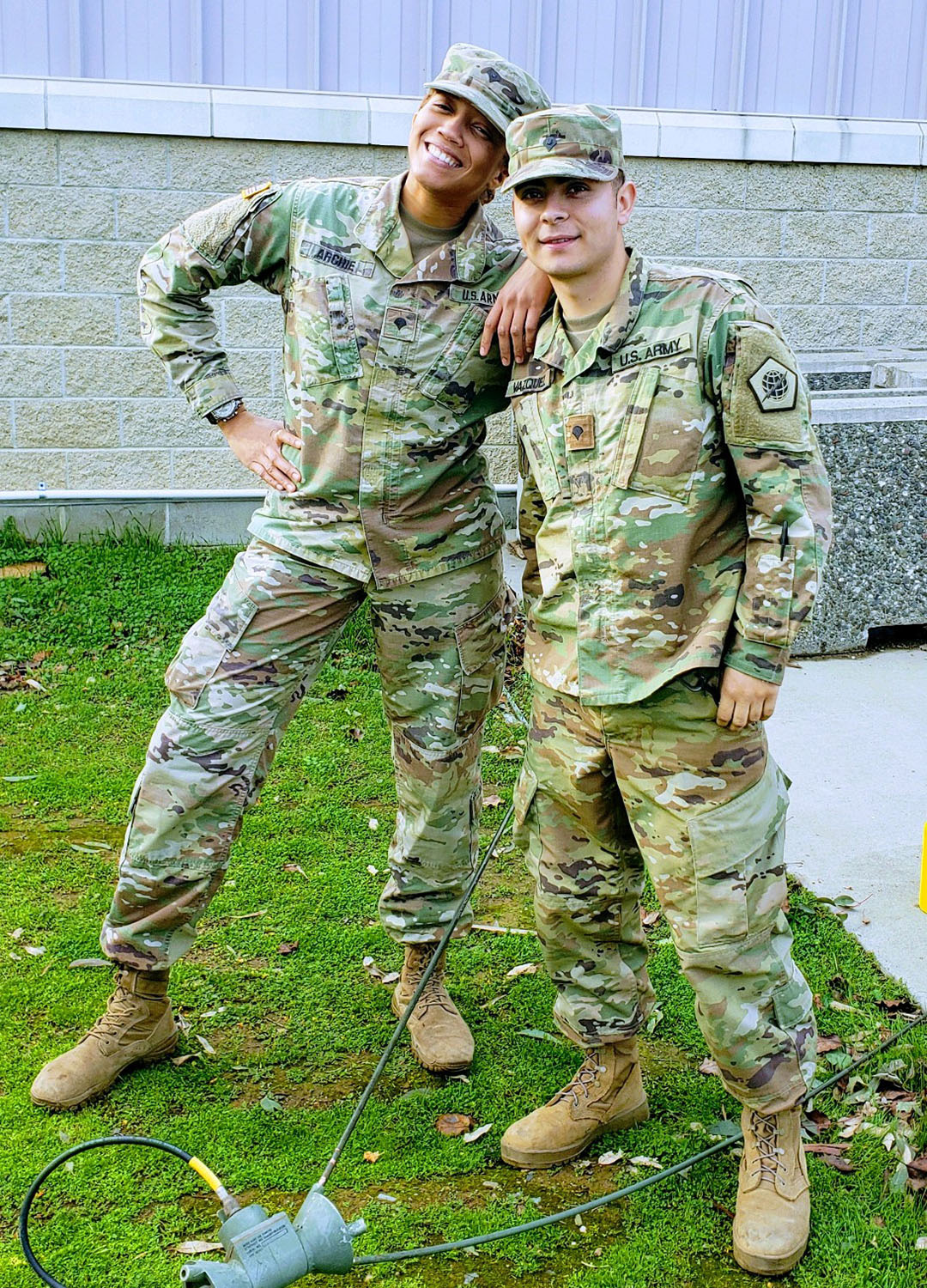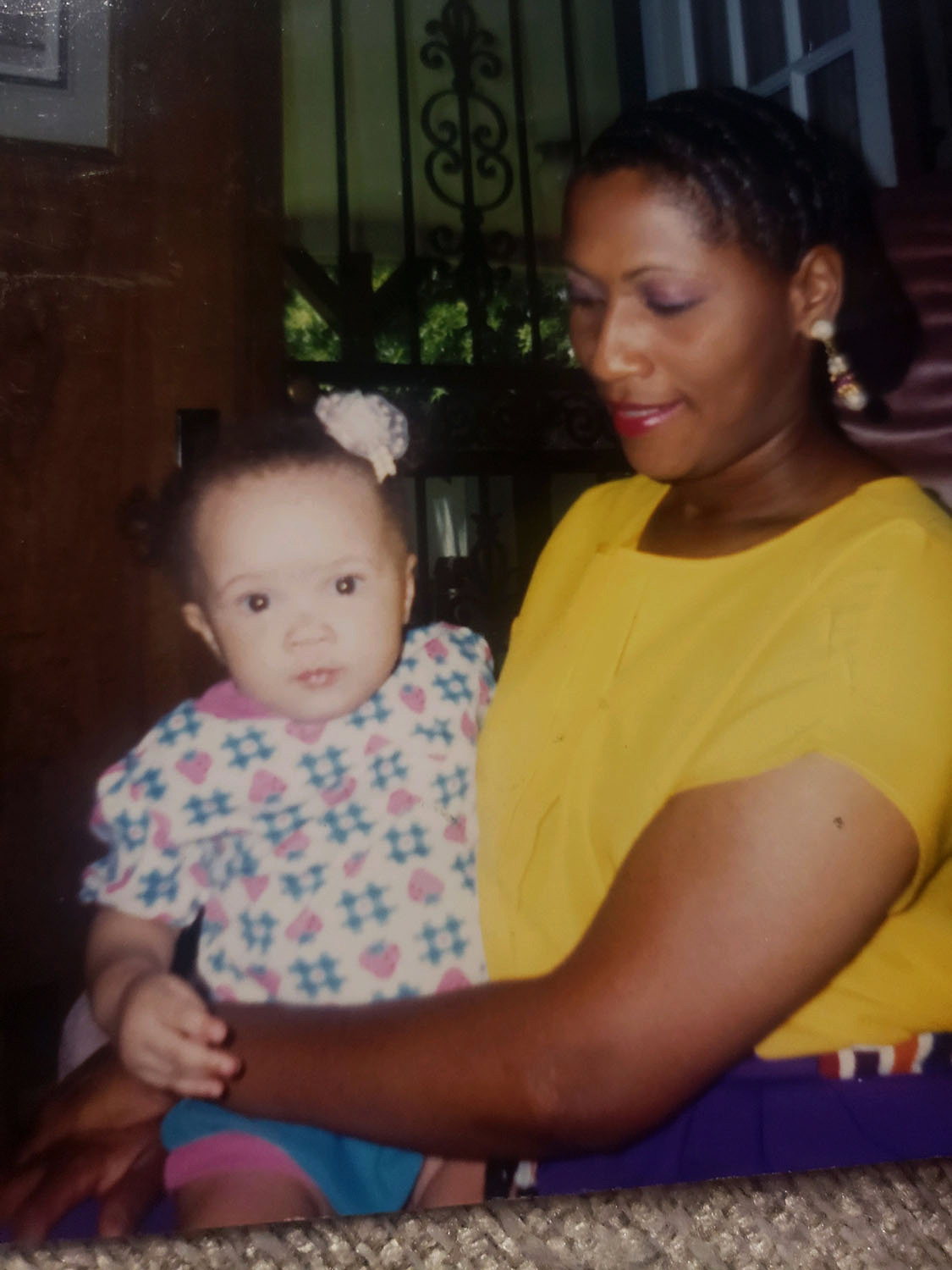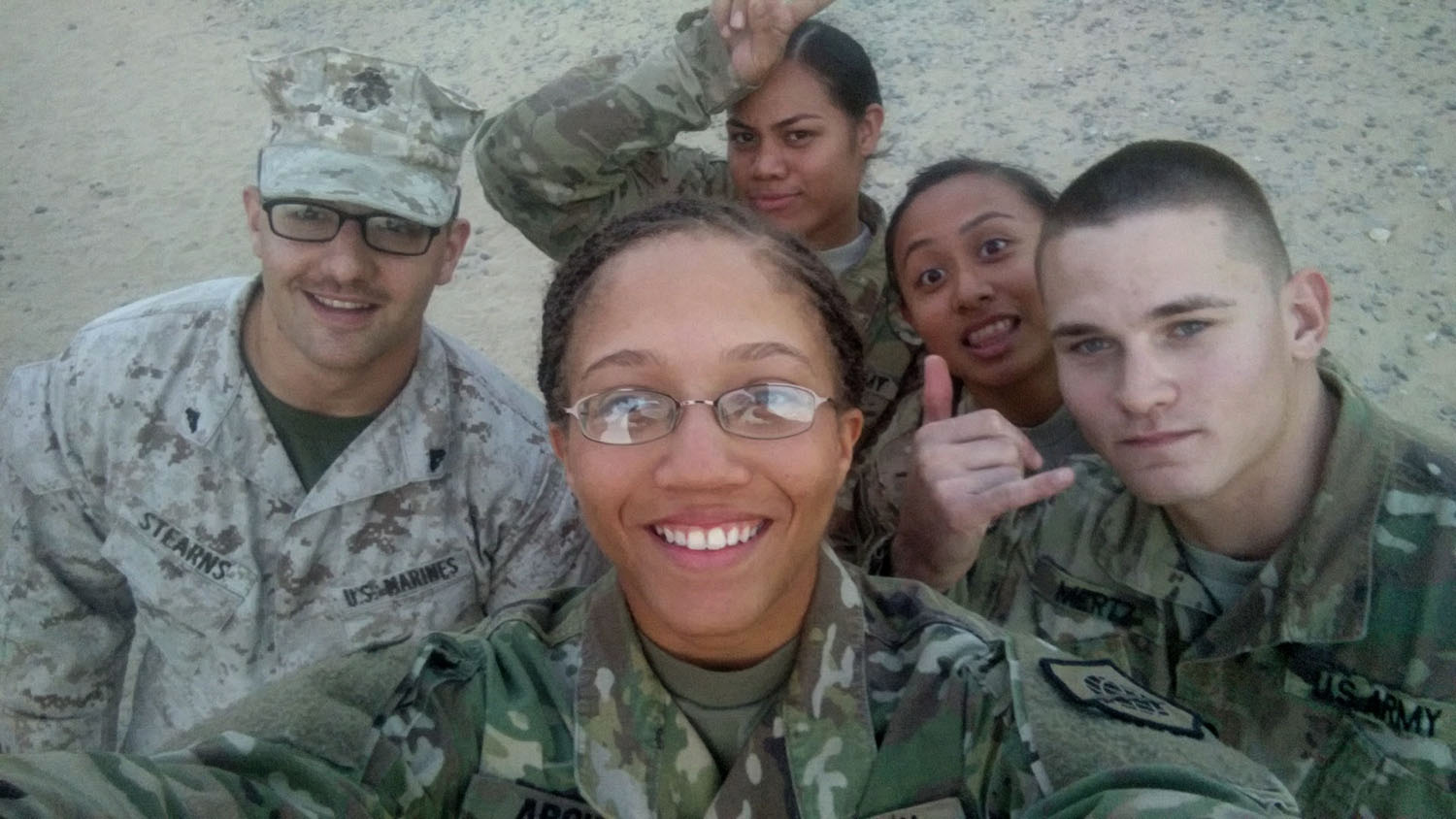
What does it mean to be an American?
We are finding, coaching and training public media’s next generation. This #nprnextgenradio project is created in Sacramento, Calif., where four talented reporters are participating in a week-long state-of-the-art training program.
In this project we are speaking to people from various walks of life—whether they are Indigenous, native born, a naturalized citizen, a refugee or an immigrant without legal status—to ask what it means to be an American.
Illustration by Eejoon Choi
‘Being a black woman is empowering’: Army veteran pushes against racial stereotypes
As a black woman growing up in the south, Schmelzle faced the pressures of a racist society on a daily basis. But Schmelzle saw these experiences as a chance to push against stereotypes that people have of black women.
“I want to prove them wrong by the way that I live my life and the way that I succeed with literally anything that I put my mind to,” said Schmelzle.
Schmelzle was born in Greenwood, Mississippi in 1992, and dreamed about the different careers she would pursue when she got older.
Pushing Against Stereotypes

Being a soldier was the only one that stuck. She fulfilled her dreams of being in the military when she enlisted in the United States Army in 2013. She served for eight years and was based in Kuwait for nearly a year while also traveling to Qatar and the surrounding area.
Schmelzle joined the military because she saw her potential and believed the military could bring it out in ways that would benefit the rest of her life. Being in the military gave her an opportunity to return to the basic foundations of this country, to live a life of freedom, equality and justice.
For Schmelzle, being an American means having the freedom to choose whatever lifestyle or path that best suits you without, “feeling pressured or forced to succumb to any particular [societal demands].”
As a black woman, Schmelzle continues to face racial stereotypes on a daily basis, but that doesn’t stop her from pursuing her version of the American dream.
She said being a black woman is empowering.
Her experience in the military was a positive one. She said her fellow soldiers understood the history of black women in the military.
“They just kind of get out of your way and let you be a badass,” Schmelzle said. Any discrimination she did come up against didn’t phase her. That’s because of her experiences growing up in the South — where she faced bigotry regularly.
“I didn’t really give people the time of day,” said Schmelzle.


“She started teaching me this stuff before I was even old enough to understand what any of it meant,” said Schmelzle. “So now it’s just so embedded in how I think and how I act and how I behave.”
These lessons have been exemplified in Schmelzle’s life by giving her the ability to pursue her version of the American dream and following multiple career paths: model, actress, personal trainer and now administrative executive.
“I persevered, regardless of society and regardless of people’s opinions and judgments of me,” said Schmelzle.

